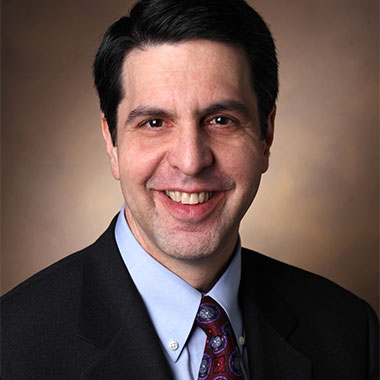In a recent article in the Journal of Endocrinology and Metabolism, Howard Baum, M.D., endocrinologist at the Vanderbilt Eskind Diabetes Clinic, elaborates a definition of “clinical excellence” in endocrinology that synthesizes medical management guidelines with the broader skill set needed to excel as a practitioner.
At Vanderbilt, Baum coaches fellows on how to go beyond the mastery of disease criteria and guidelines to practice this model of clinical excellence. The emphasis is on applying experience, wisdom and patient-centered values to offer superior care.
Discoveries: Why is defining clinical excellence a timely issue?
Baum: We currently lack criteria for what it means to deliver a holistic, integrated approach to our patients, and for how to train new endocrinologists to achieve it.
I think we need this now more than ever. There are a number of forces conspiring to diminish how the art and science of medicine interact. Probably the biggest is the presence of EHRs, which tend to get clinicians focused on computer work and not engaging with the patient. I also see online information becoming a substitute for wisdom. Our residents and fellows may be quite familiar with quantitative criteria prompting surgical treatment of hyperparathyroidism, for example, but when you dig a little, you find that some of these published recommendations have little scientific support and may reflect only the opinions of the authors.
I decided to develop the concept of clinical excellence to help our endocrinology trainees. Excellence is a goal that requires a journey way beyond knowing the facts of medicine. Through a series of sessions with fellows and junior faculty, I encourage them to understand the qualities they will need to be excellent endocrinologists.
Discoveries: What criteria for excellence did you select and why?
Baum: I selected four criteria that are most essential to our specialty:
- The ability to work in teams: being effective as a team player, which is crucial in a specialty that involves multiple organ systems, frequent referrals and ongoing patient interaction.
- Communication and interpersonal skills: finding ways to engage patients despite our tight schedules and address the mounting questions patients have due to internet searches.
- Strong knowledge base with a scholarly approach: looking beyond what has bubbled to the surface of the research to really understand what is applicable.
- Skillful negotiation of the healthcare system: knowing how to navigate patients’ insurance plans and helping them sift out how to afford medicines, how to take them, and how to get tests they need.
Discoveries: What are some favorite sessions when you teach clinical excellence?
“Think of a case where the patient’s social, spiritual or personal situation had a big impact on their care, upon you as a physician, or on how they interact with their disease.”
Baum: In each session, we take some aspect of endocrinology and show how the four criteria apply to it. My favorite prompt so far is, “Think of a case where the patient’s social, spiritual or personal situation had a big impact on their care, upon you as a physician or on how they interact with their disease. I want you to talk about that with everyone.” Sharing these stories turned out to be fantastic.
During another session, we discuss clinical guidelines around the management of hyperparathyroidism. Even though the indication to surgically remove the gland is pretty clear, patients, armed with internet information, may challenge that decision. The message to the fellows is you have to figure out how to negotiate that and convey your recommendation so you and your patient reach a conclusion together.
Discoveries: How might this training extend beyond your current group?
Baum: Some institutions have programs recognizing physicians who meet clinically excellent parameters. They may call them “master clinicians,” not only rewarding particular physicians but also creating an environment where clinical excellence is acknowledged as being most important.
My plans at Vanderbilt include addressing these concepts with some of our junior faculty in endocrinology. There’s concern about burnout in these positions, and this may help. I am also talking with hospital committees about engaging fellows in other divisions.
Discoveries: Does our data-driven healthcare system allow room for what you’ve coined “old-fashioned values”?
Baum: We need to make sure it does. Just the way we handle EHR work can make a difference. Patients grasp that the EHR is a part of their care, but I demarcate the time I’m focusing on the patient from EHR time. I will say, “I need to take a minute to enter this information, so we make sure this is accurate and we take care of you.”
Using scribes is another way of helping physicians stay engaged with patients, while potentially having a positive net effect on revenue.
Discoveries: Will personalized medicine change the patient care dynamic in endocrinology?
Baum: There’s a lot of focus on this in terms of applying genetic knowledge to target the best medication, surgery and other treatment. I argue that personalized medicine must continue to mean how the physician treats the patient, taking into account their individual circumstances to develop an effective treatment protocol.
It’s about thinking hard, trying to be wise — that’s it! It’s going to be a long time before that statement changes meaningfully.





